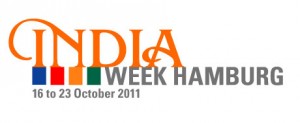GIRT sees the fourth India Week Hamburg as an ideal platform to further boost bilateral relations
 Hamburg (11.10.2011): India has emerged as a hotbed for low-cost, frugal innovations. Buoyed by the entrepreneurial spirit of India’s large private sector and a growing middle class, firms of all sizes and nationalities with a base in India have churned out several affordable and innovative products. “Aakash”, the latest tablet PC priced at about € 35, which has been recently launched in India is an excellent example of such ideas and business model innovations emanating from the Subcontinent.
Hamburg (11.10.2011): India has emerged as a hotbed for low-cost, frugal innovations. Buoyed by the entrepreneurial spirit of India’s large private sector and a growing middle class, firms of all sizes and nationalities with a base in India have churned out several affordable and innovative products. “Aakash”, the latest tablet PC priced at about € 35, which has been recently launched in India is an excellent example of such ideas and business model innovations emanating from the Subcontinent.
Many local users in India’s rural areas come up with inventions that are not only innovative and useful but also less expensive than the usual solutions available in the market. Another important feature of grassroot innovations is that they are generally environment friendly and in sync with the given infrastructural conditions. Examples of such innovations include water-based cooling systems that do not require electricity, or non-sticky frying pans made of earth.
Interestingly, India’s emergence as “innovation hub” for low-cost, frugal innovations, often directed at the bottom of the economic pyramid have gone hand-in-hand with increasing exports of engineering goods made in India. The volume of India’s export of engineering goods has increased more than 10-fold in the past 15 years, reaching nearly $ 70 billion. Germany alone imported engineering goods worth $ 11 billion from India in the last fiscal year.
“We see India rapidly emerging as a lead market for frugal innovations”, says Rajnish Tiwari, Head of German-Indian Round Table (GIRT) in Hamburg. Tiwari, who in his capacity as leader of “Research Project Global Innovation” at the Hamburg University of Technology (TUHH) has done extensive studies on India’s innovative capacities and Indo-German business relations, sees the suitability of India’s frugal technologies extending especially to markets in South Asia, Africa and Latin America, where many countries have similar socio- economic and geographical structures. He advocates German firms’ participation to realize what his colleague Dr. Stephan Buse from TUHH calls is a “win-win proposition”.
TUHH and GIRT have therefore decided to hold a symposium on the theme of “Grassroot Innovations: New Opportunities for Indo-German Cooperation?” to explore the possibility of joint commercialization of innovations coming from India’s both formal and non-formal sectors. Grassroot innovations in India have been supported and popularized by untiring and inspiring efforts of Prof. Anil Gupta of Honey Bee Network. Several renowned experts, including Prof. Gupta, will participate in a symposium on 20th October 2011 at the Hamburg Chamber of Commerce. The symposium is being held as a part of the fourth “India Week Hamburg”. GIRT, along with its partners, is co-organizing the following events during the India Week:
We invite all interested persons and firms to participate in these events. The participation is free of charge but requires a prior registration for organizational reasons. All further information can be accessed via:
www.girt-hamburg.de
www.global-innovation.net
Download this press release as PDF
About German-Indian Round Table (GIRT)
The German-Indian Round Table (GIRT) was founded by Rudolf Weiler in 2001 and forms a loose federation of businessmen and entrepreneurs with strong ties and interests in India. GIRT’s objective is to inform about India and to strengthen Indo-German business relations. GIRT’s local chapters are organised regularly in Aachen, Berlin, Düsseldorf, Frankfurt, Hamburg, Hanover, Leipzig/Halle, Munich, Nuremberg, Stuttgart in Germany and New Delhi/Gurgaon, Pune and Coimbatore in India. GIRT connects about 3,000 people from the Indo-German business community. The Chairman, as well as the respective heads of local sections, of GIRT work on an honorary basis. Since February 2010 Dr. Andreas Waldraff from Berlin is the chairman of GIRT.
The Hamburg Chapter of GIRT is headed by Mr. Rajnish Tiwari from Hamburg University of Technology (TU Hamburg-Harburg). Mr. Tiwari works there as a Research Associate at the Institute for Technology and Innovation Management and leads the Research Project “Global Innovation” (www.global-innovation.net). He has done extensive research on Indo-German business relations and is a co-initiator of the India Week in Hamburg (www.indiaweek.hamburg.de). Further information about GIRT in Hamburg can be accessed at: www.girt-hamburg.de.
India Week in Hamburg (www.indiaweek.hamburg.de)
Kontakt GIRT Hamburg:
Rajnish Tiwari
GIRT Hamburg
c/o TU Hamburg-Harburg
Institut TIM (W-7)
Schwarzenbergstr. 95
D-21073 Hamburg
Tel. +49 (0)40-42878 3776
Fax +49 (0)40-42878 2869
E-Mail: tiwari@tuhh.de
Pressekontakt GIRT:
Sven Andressen
Redaktion GIRT-Blatt
c/o Indien Aktuell Business Düsseldorf/Bremen
Post: Kaiserswerther Markt 51
D-40489 Düsseldorf, Germany
Tel. +49 (0)421-51660465
Fax +49 (0)421-51660466
Mobile +49 (0)179-60811602
E-Mail: sa@indienaktuell.de
Pressekontakt India Week:
Johannes Freudewald
Büro für Medienarbeit
Post: Osterstr. 58
D-20259 Hamburg, Germany
Tel. +49 (0)40-37420352
Fax +49 (0)40-37420353
Mobile +49 (0)176-43005016
E-Mail: johannes@freudewald.de

